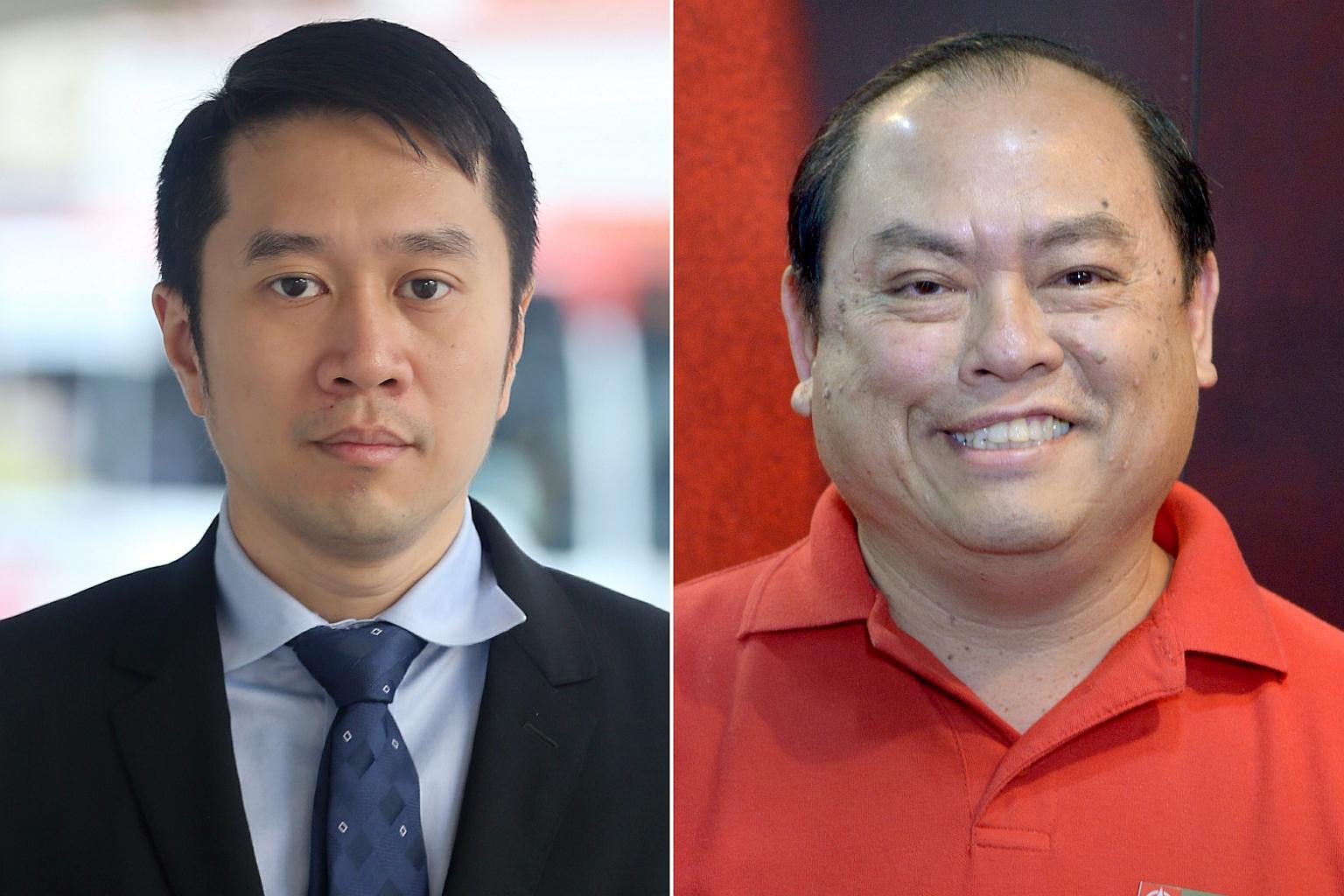Activist Jolovan Wham and SDP's John Tan found guilty of contempt of court
Sign up now: Get ST's newsletters delivered to your inbox

The cases against Jolovan Wham (left) and John Tan are the first to be brought under new contempt laws that took effect last October under the Administration of Justice (Protection) Act.
ST PHOTO: WONG KWAI CHOW, ST FILE
Follow topic:
SINGAPORE - Civil activist Jolovan Wham and opposition politician John Tan became the first to be found guilty under new contempt laws on Tuesday (Oct 9) by scandalising the judiciary in posts they had made separately on Facebook.
High Court judge Woo Bih Li found that the pair's posts had impugned the integrity and impartiality of the Singapore courts and posed a risk that public confidence in the administration of justice would be undermined.
Wham had made a Facebook post on April 27 stating that Singapore's courts are not as independent as Malaysia's on cases with political implications. The remarks accompanied a link to an online article, "Malaysiakini mounts constitutional challenge against Anti-Fake News Act".
The Attorney-General's Chambers (AGC) then initiated a contempt of court action against him.
On May 6, Tan, a Singapore Democratic Party politician, stated on Facebook that the AGC's actions confirmed the truth of Wham's comment.
The cases against the duo are the first to be brought under new contempt laws that took effect last October under the Administration of Justice (Protection) Act.
The case was argued before Justice Woo in July.
Back then, Senior State Counsel Francis Ng, representing the AGC, argued that Wham's remarks implied to an average person that if the constitutional challenge in Malaysia were to happen in Singapore, it would fail due to a lack of judicial independence here.
Lawyers Eugene Thuraisingam and Choo Zheng Xi, who acted for Wham, argued that Wham was merely comparing the two judicial systems, which constitutes fair criticism.
Mr Thuraisingam made the case that Tan's statement was not directed at the courts but at the AGC.
The defence also argued that the provision in the Act that governs contempt by scandalising the courts violates the constitutional right to freedom of speech, as it effectively criminalises speech that only has a small likelihood of undermining confidence in the administration of justice.
However, Justice Woo ruled on Tuesday that the provision was constitutional.
The judge found that - from the view of the average reasonable person - Wham's post posed a risk of undermining public confidence in the administration of justice.
"Further, I find that Wham's post had no rational basis and Wham made a bare statement impugning the integrity and impartiality of Singapore's judges without providing any basis for the statement."
"I find that Wham's post was not made in good faith, and did not constitute fair criticism of a court," said Justice Woo.
The judge said that since Wham's post impugned the integrity and impartiality of the Singapore courts, Tan's post, which was "not premised on objective facts or on a rational basis", did likewise.
"Tan might also be criticising the A-G for commencing proceedings against Wham, but this was an additional attack on top of the attack on the Singapore courts," said the judge.
The case has been adjourned for sentencing.
The AGC has to file written submissions by Oct 16, while Wham and Tan have to file by Oct 30. A hearing date for oral replies will be fixed after Nov 7.
A person found guilty of contempt could be fined up to $100,000 or jailed for up to three years, or both.

